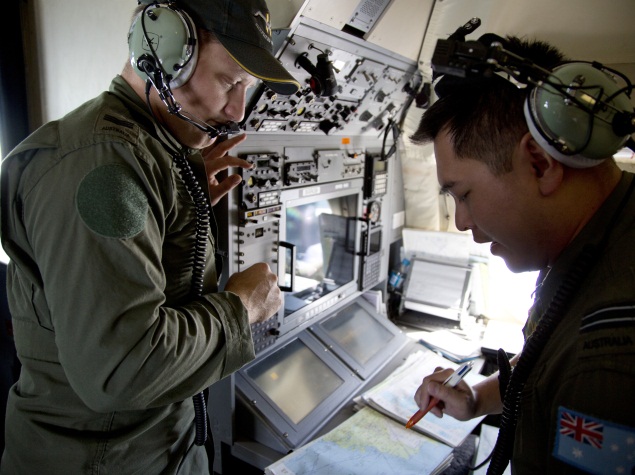- Home
- Science
- Science News
- Automated Cockpits May Drive 'Bored' Pilots Crazy
Automated Cockpits May Drive 'Bored' Pilots Crazy

"Humans are not robots. We can not stare at a green light for hours at a stretch without getting tired, bored, or going crazy," said Stephen Casner, a research psychologist at Nasa's Ames Research Center in the US.
Although the automated systems in cockpits assume many of the tasks formerly performed by human pilots and do it with impressive reliability, the pilots can not completely disengage from the tasks as they are expected to respond if something goes amiss.
"The mind is restless," maintained Jonathan Schooler, a professor of psychological and brain sciences at University of California, Santa Barbara.
"When we are not given something specific to think about, we come up with something else to think about," Schooler added.
For the study, researchers designed a flight simulation study in which they asked pilots to follow a published arrival procedure into New York's busy John F. Kennedy International Airport.
As the pilots navigated the flight, they were asked about what they were thinking during various levels of automation and to assign their thoughts to three categories: the specific task at hand, higher-level thoughts (for example planning ahead), or thoughts unrelated to the flight (for example, what is for dinner).
The pilots reported an increase in big-picture flight-related thoughts when using higher levels of automation, but when the flight was progressing according to plan and pilots were not interacting with the automation, their thoughts were more likely to wander.
"As technology grows in capability, we seem to be taking the approach of using humans as safety nets for computers," Casner noted.
On the basis of these findings, researchers studying cockpit automation might consider rethinking the interaction between humans and machines.
The study appeared in the journal Human Factors.
For details of the latest launches and news from Samsung, Xiaomi, Realme, OnePlus, Oppo and other companies at the Mobile World Congress in Barcelona, visit our MWC 2026 hub.
- Samsung Galaxy Unpacked 2026
- iPhone 17 Pro Max
- ChatGPT
- iOS 26
- Laptop Under 50000
- Smartwatch Under 10000
- Apple Vision Pro
- Oneplus 12
- OnePlus Nord CE 3 Lite 5G
- iPhone 13
- Xiaomi 14 Pro
- Oppo Find N3
- Tecno Spark Go (2023)
- Realme V30
- Best Phones Under 25000
- Samsung Galaxy S24 Series
- Cryptocurrency
- iQoo 12
- Samsung Galaxy S24 Ultra
- Giottus
- Samsung Galaxy Z Flip 5
- Apple 'Scary Fast'
- Housefull 5
- GoPro Hero 12 Black Review
- Invincible Season 2
- JioGlass
- HD Ready TV
- Latest Mobile Phones
- Compare Phones
- Apple iPhone 17e
- AI+ Pulse 2
- Motorola Razr Fold
- Honor Magic V6
- Leica Leitzphone
- Samsung Galaxy S26+
- Samsung Galaxy S26 Ultra
- Samsung Galaxy S26
- MacBook Pro 16-Inch (M5 Max, 2026)
- MacBook Pro 16-Inch (M5 Pro, 2026)
- Apple iPad Air 13-Inch (2026) Wi-Fi + Cellular
- Apple iPad Air 13-Inch (2026) Wi-Fi
- Huawei Watch GT Runner 2
- Amazfit Active 3 Premium
- Xiaomi QLED TV X Pro 75
- Haier H5E Series
- Asus ROG Ally
- Nintendo Switch Lite
- Haier 1.6 Ton 5 Star Inverter Split AC (HSU19G-MZAID5BN-INV)
- Haier 1.6 Ton 5 Star Inverter Split AC (HSU19G-MZAIM5BN-INV)












